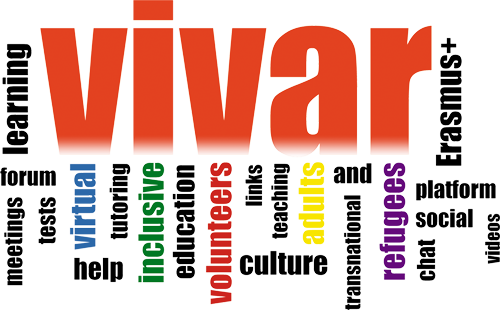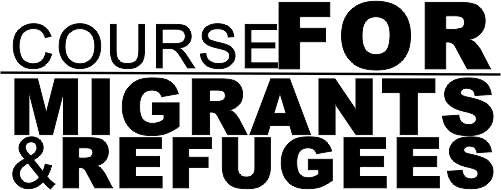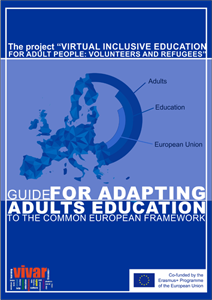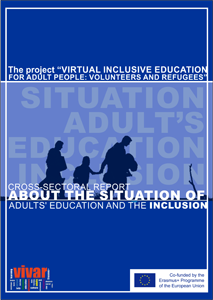“VIRTUAL INCLUSIVE EDUCATION
FOR ADULT PERSONS”

The teaching and training processes for adult people are often hindered by a lack of clearly defined and stimulating objectives for these kinds of students: sometimes the methods are not adapted to their real needs, or their education ends up not having practical consequences in their daily life.
The project “VIRTUAL INCLUSIVE EDUCATION FOR ADULT PEOPLE: VOLUNTEERS AND REFUGEES” has a span of 24 months, and will try to solve these issues through two main actions:
On the one hand, it encourages the education of adult people through the work with migrants and refugees. This service of social volunteering can be the activity that finally inspires adult people to complete and boost their education. Several organizations will collaborate by specifically working in these matters along with adult people educational centers, thus creating a practical training process that will encompass the development of adults’ basic, language, and digital skills, plus an official title or certificate, combining on-line learning and social services to boost their self-esteem, personal motivation, leadership, and social entrepreneurship.
On the other hand, this will foster the integration of refugee and migrant people into society, offering them the necessary tools for this process through an e-learning platform adapted and designed according to their specific needs and in their native languages, by social organizations with a long experience in this field.
The project will create a collaboration system with an exchange of experiences between migrant people, national adult people, and educational and social organizations to promote citizenship, solidarity and integration. This includes a highly innovative virtual training with courses, materials and ICTs, distributed in 3 levels: BASIC SKILLS – INCLUSION – EMPLOYABILITY.
An intersectorial partnership (enterprises, educational centers, social organizations) will design the educational materials, courses, didactic programs and methodologies, and NGOs will guide the learning process of the volunteers, that will in turn also end up being tutors for the refugees with the support of organizations with experience in education.
This project wants to create a strategic network of six organizations, three of them are experts in the design and development of educational materials: Redtree Making Projects (Spain), European Language Equality Network (France) and Smallcodes (Italy), plus another three adult training providers and/or social organizations working with migrants and refugees: Asociación de Jóvenes Musulmanes en Valencia (Spain), Greta du Velay (France) and Giovani Musulmani d’Italia (Italy), that will assess the reports “Adult Learners in Digital Learning Environments” (EAC-2013-0563) and “An in-depth analysis of adult learning policies and their effectiveness in Europe”, published in 2013 by the General Direction of Employment, Social Affairs and Inclusion from the European Commission.
With this analysis as a basis, we proposed an intelligent on-line learning system able to define the user’s profile (previous knowledge, languages, strengths and weaknesses in their education…) to create in response personalized learning pathways that allow adult social volunteers to develop their skills (both basic and specific) and to certify their learning. This system does also include training blocks to improve the inclusion of migrants and refugees through the development of their basic skills, such as reading, writing, math, and their digital skills, so they can obtain professional certificates acknowledged in the countries of the European Union. We propose an INTELLIGENT ON-LINE LEARNING EDUCATIONAL PLATFORM FOR INCLUSION to define the specific needs of these adults and adapt to them the educational pathways through an on-line training both synchronous and asynchronous, while having available at the same time a personal on-site and mixed teaching that the users can follow.
The project we propose comes from a very innovational idea that tries to provide specific solutions to concrete and current needs in the social and cultural fields in the EU, such as adult education, social volunteering, and the refugee humanitarian crisis.
Our objective with this project is double:
On the one hand, we want to promote an appealing training system for native adult people with lower educational levels that need new incentives to start again in the adventure of education. The path envisioned for this is the training for the work as social volunteer for entities aimed at tackling the humanitarian refugee crisis.
On the other hand, we want to supplement the education of migrants and refugees (according to ACNUR’s 2015 REVIEW, 80% of the refugees arriving at Europe have completed high-school and/or college) with a specific training of their foster country to allow a better inclusion.But this course will also help you develop tools for the critical analysis of your environment, and encourage you to directly participate in volunteering as a mechanism to build a more inclusive, diverse, and fair society.
It is unquestionable that adult training enables the development of a series of basic, social, cultural and digital skills that are essential for personal growth, but also for the social inclusion of adults, while boosting their employability. This is especially true for migrant or refugee people that require training processes adapted to their foster countries because they lack specific training, but also for native people.
The project’s priorities have been designed keeping in mind the proposed goals and the expected results. We consider that this project has the main goal of contributing considerably to the development and improvement of adult people’s basic skills, specifically their digital skills and the will to “learning to learn”.
We have thoroughly analyzed the directives “Adult Learners in Digital Learning Environments” (EAC-2013-0563) and “An in-depth analysis of adult learning policies and their effectiveness in Europe”, published in 2013 by the General Direction of Employment, Social Affairs and Inclusion from the European Commission, in order to establish the proper activities and indicators to achieve the objectives defined by the EU.
Thanks to the conclusions drawn from this, educational pathways for Adult People Training will be developed, adapted to EU’s guidelines, and will be supported by an innovative methodology that encourages adult people to improve their basic skills as a mean to actively participate in solving Europe’s social problems.
This process will lead to the priority of ADULT EDUCATION: IMPROVING AND EXTENDING THE SUPPLY OF HIGH QUALITY LEARNING OPPORTUNITIES TAILORED TO THE NEEDS OF INDIVIDUAL LOW-SKILLED OR LOW-QUALIFIED ADULTS.
Another fundamental objective is the promotion of the HORIZONTAL PRIORITY: SOCIAL INCLUSION through new mechanisms for inclusive education and for the integration of refugees and migrant people. We believe that all educational processes should be adapted to the historic and social environment in which they are developed, helping to overcome social crises. Furthermore, we understand that this kind of projects improve learning quality, because they do not only provide knowledge to the students (both European and migrant ones), but also tools for personal, social, and occupational development.
Thanks to the project “VIRTUAL INCLUSIVE EDUCATION FOR ADULT PEOPLE: VOLUNTEERS AND REFUGEES”, we will not only provide basic and digital skills to adult people, but we’ll also grant them a full social and labor inclusion. This is thanks to being able to certificate their knowledge, create solidarity networks between European adults and refugees, and bringing the users into contact with social organizations that can help them (in the case of Europeans) or to ask for help (in the case of migrants and refugees).
This INTELLIGENT EDUCATIONAL E-LEARNING PLATFORM FOR INCLUSION is specifically designed for the field of adult education. This innovational tool introduces a new development process of basic and digital skills for adult people, aimed specifically to the inclusion of migrant, refugee or asylum seeker people.
This course offers its adult users the opportunity to acquire, update, complete, or expand their knowledge and skills for their personal and professional development through formal and non-formal education. We want to offer you the possibility of developing basic training, expanding and renewing your knowledge, skills, and abilities permanently.
This guide collects the conclusions of the review process of the existing framework of the EU for the education of adult people. This study is based on the reports “Adult Learners in Digital Learning Environments” (EAC-2013-0563) and “An in-depth analysis of adult learning policies and their effectiveness in Europe” by the General Direction of Employment, Social Affairs and Inclusion from the European Commission. This result have a deep impact on adult education centers, since it identifies the skills needed for each user profile, provides for them a description and indicators, and establishes the required levels of skills, abilities and knowledge with informative examples.
This report present a deep and objective analysis about the situation of adults’ education and about how it can overcome the crisis of the refugees affecting Europe. This document provide a cross-sectoral scope of the current situation and the work methods to solve it, through gathering unbiased statistical social data for each participating country.
This network has an intersectorial nature from its very conception, since it brings together entities from the educational field (both public and private) and other partners and social entities that work for refugee and migrant people. As the results generated in this project are being consolidated, more entities will join it, such as public authorities, private entities, international NGOs, etc.
The project’s web page is a core element used not only to offer direct information, but also as a diffusion tool and to send other materials like the reference material, publications, booklets, logo, etc.
It includes dissemination brochures and other papers such as banners and displays to be delivered during events and official ceremonies.
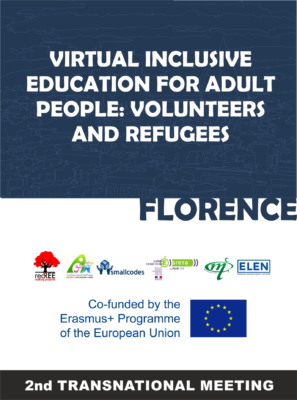
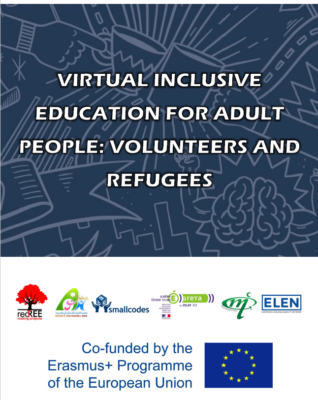
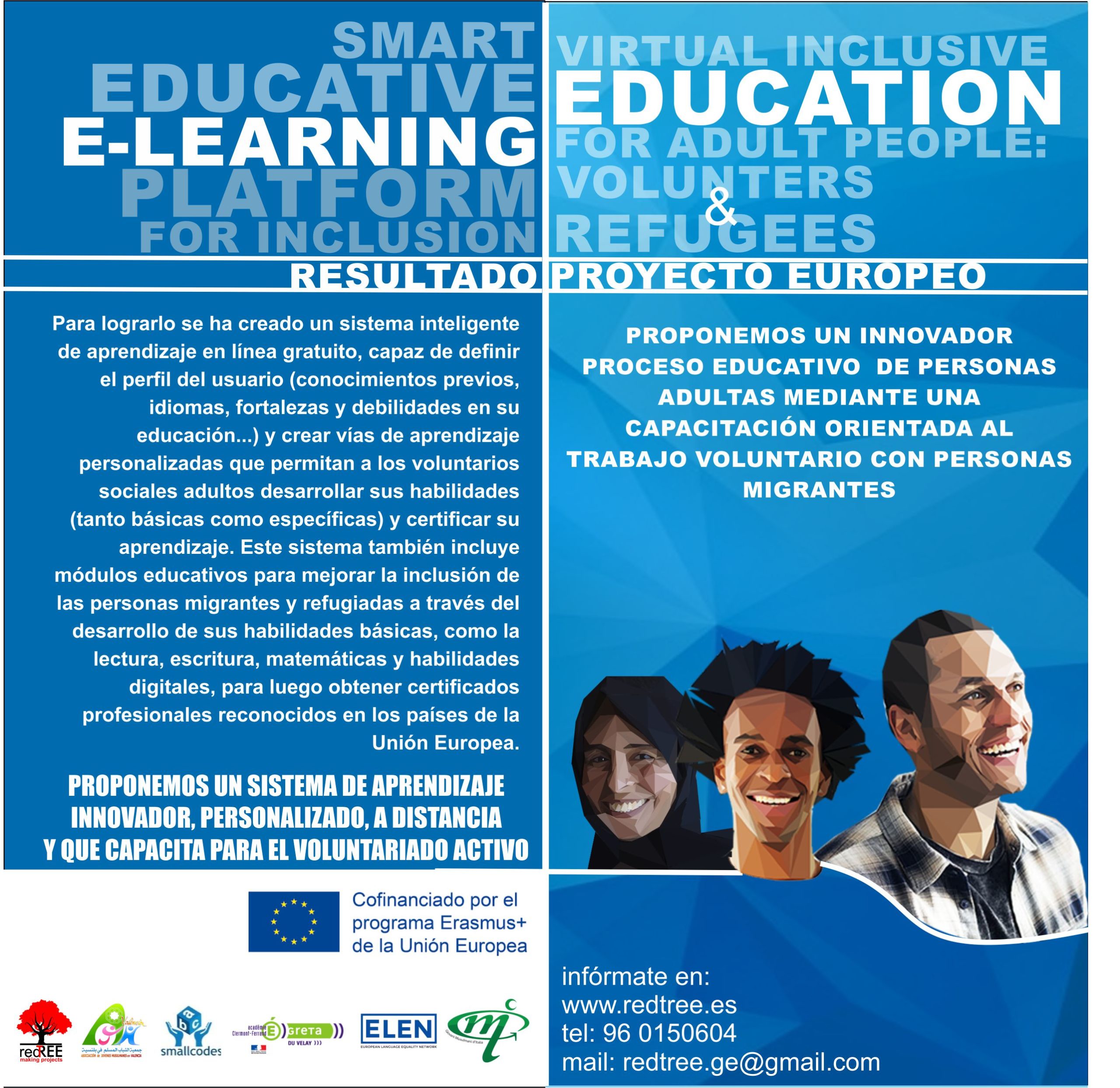
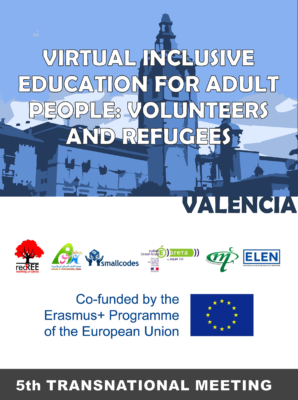
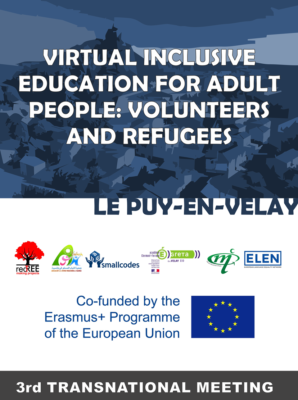
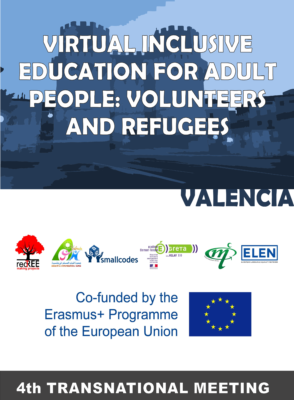
First Transnational Meeting: Valencia – 16/02/2018: it was held in the office of Redtree Making Projects Coop.V. This meeting was very useful to reach essential agreements for the project, but more importantly, to establish bonds between the participants and to start the networking of the strategic partnership. The evaluation of the preparation stage was also carried out in this transnational meeting.
Second Transnational Meeting: Firenze – 21/06/2018: it was held in Smallcodes’ headquarters. The main objective of this meeting was to assess the progress made in the project and on the intellectual output, and also to define the index of the courses and the internal functioning of the e-learning platform.
Third Transnational Meeting: Le Puy-en-Velay – 14/02/2019: it was held in Greta du Velay institute for adult learning. The main objective of this meeting was again to assess the progress made in the project and on the intellectual output, to evaluate the internal functioning of the e-learning platform, and also the presentation of the first course for adult people.
Fourth Transnational Meeting: Valencia – 10/05/2019: it was held in the office of Redtree Making Projects Coop.V. and its main objectives were, as usual, to assess the progress made in the project and on the intellectual output, to finalize the internal functioning of the e-learning platform, and also the presentation of a part of the second course for volunteer.
Fifth transnational meeting: Valencia – 17/07/2019: In this fifth and final transnational meeting of the project “VIRTUAL INCLUSIVE EDUCATION FOR ADULT PEOPLE: VOLUNTEERS AND REFUGEES” organized by AJMV in collaboration with Redtree Making Projects, the project as a whole and the progress in the activities and events of the dissemination stage were evaluated.
The partner entities Greta du Velay, Smallcodes, and ELEN showed great satisfaction, highlighting elements such as the high impact capacity of the project’s results, and the good working environment developed among the partners, which has made it easier to reach agreements in all the relevant aspects of the project.
Lastly, the interest of continuing with this partnership created was voiced, with the desire to continue developing learning processes through new projects for inclusion.
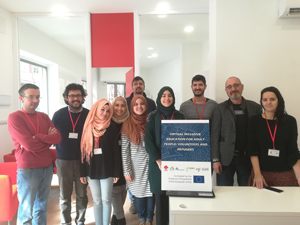
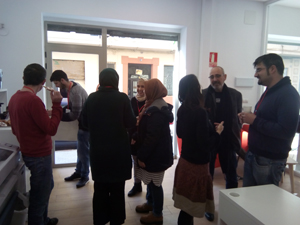
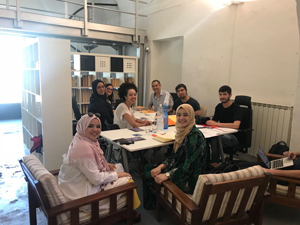
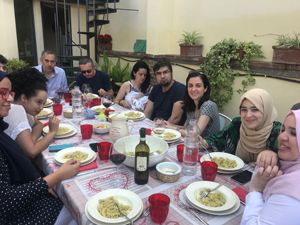
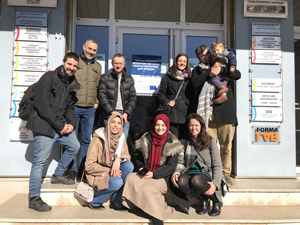
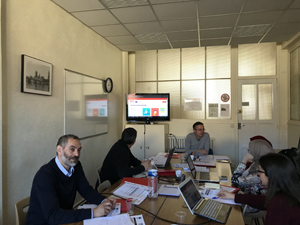
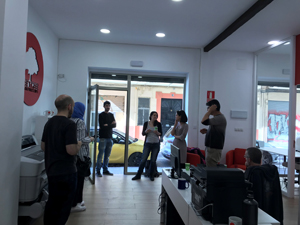
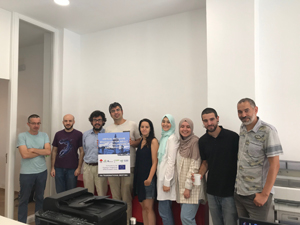
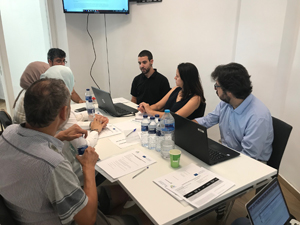
Activities for pilot testing the tools by users from the social organisations. We have created four activities to test the result in their Beta phase. It is fundamental that the future users themselves find out errors, because not only it improve the results quality, but also because it allow the testers to learn digital skills within the creation of the results.
PP1.- First pilot test was made on March 29, 2019 in collaboration with the Islamic Cultural Center and the Women's Association "An-nur". 20 users tested the adult course and 20 users tested the migrant and refugee course.
PP2.- Second pilot test was made on July 17, 2019 in the fifth transnational meeting. 10 experts from the partner entities tested the three courses of VIVAR.
PP3.- Third pilot test was made on October 25, 2019 inside the dissemination phase in collaboration with Universidad de Velència. 20 social workers tested the volunteer course.
PP4.- Fourth pilot test was made on October, 2019 in collaboration with AMJV. 20 users tested the volunteer course.
It should be noted that in addition, students from French entities tested the materials downloaded during the first quarter of 2019
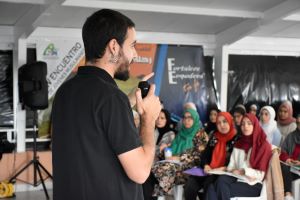
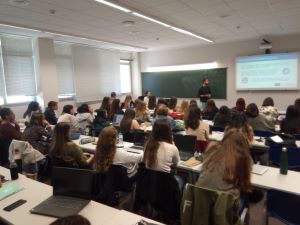
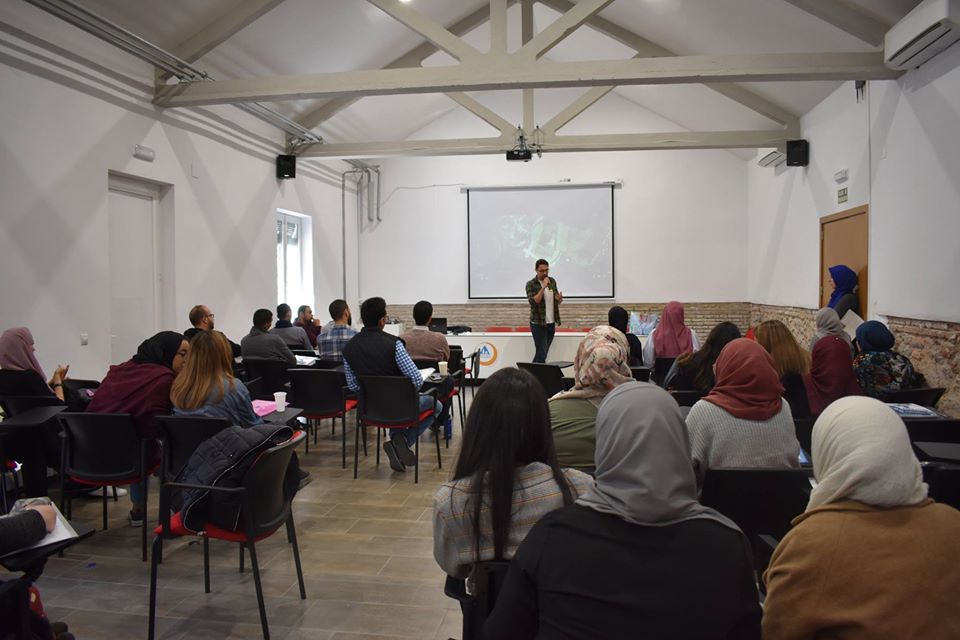
CONFERENCE FOR PRESENTING AND IMPROVING THE INTELLECTUAL RESULT: September 22nd 2019, Sevilla (Spain).
The final multiplier event of the Project “VIRTUAL INCLUSIVE EDUCATION FOR ADULT PEOPLE: VOLUNTEERS AND REFUGEES” took place last Saturday September 22nd at the facilities of Inturjoven Hostel in Seville, Spain.
The event, named “CONFERENCE FOR PRESENTING AND IMPROVING THE INTELLECTUAL RESULT” and coordinated by Redtree, managed to gather more than 100 multipliers (among political and educational institutions, press, experts, volunteer coordinators, social movements…) to present the intellectual results of the project and promote their use.
Structured with a first introduction through a state of the question on the current situation in the teaching and training processes of adults and inclusion, the event focused on the presentation of the Intellectual Output O1: the INTELLIGENT EDUCATIONAL E-LEARNING PLATFORM FOR INCLUSION, in which the materials that make up this platform were explored in a tour through it, aimed not only at testing the usefulness of the materials and disseminating them, but also at encouraging the participants to become active in their development, to achieve the biggest possible impact.
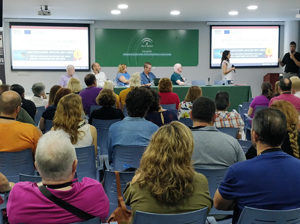
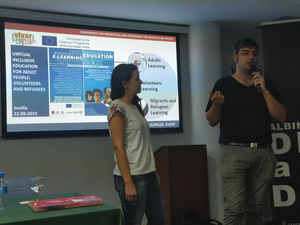
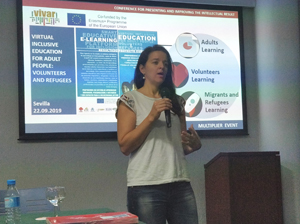
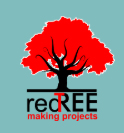
Redtree Making Projects Coop. V. is a social cooperative active in the fields of education, training and educative materials design by science and social affairs specialists. Its aim is to help social and educative organisations to develop their framework, and to improve the quality of their products through training, creating specific development plans, social studies, grant applications, legal advising, bureaucratic procedures… We want to achieve better educative levels and to improve the employability and the inclusion of the students.
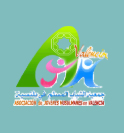
The Association of Muslim Youth of Valencia is an entity of national, apolitical and non-profit field, which aims to strengthen the ties of friendship between Muslims and the rest of society, convinced of the enrichment which carries a plural society based on respect and mutual knowledge. During more than 20 years of work, hundreds of young people have actively collaborated in projects developing with the neighbors of many places, but especially we have worked in the neighborhood of Orriols (Valencia), along with many social associations with the will to help people with fewer opportunities, improving the living conditions of all neighbors (regardless of their origin, religion or culture) and promote multiculturalism and integration.
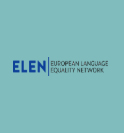
The European Language Equality Network (ELEN) is a non-profit European organization and has as its goal the promotion and protection of lesser-used (i.e. regional, minority, indigenous, co-official and smaller national) languages, (RMLs), to work towards linguistic equality for these languages, and multilingualism, under the broader framework of human rights, and to be a voice for the speakers of these languages at the local, regional, national, European and international level.

Smallcodes is a company devoted at protecting and promoting linguistic diversity through technology. It wants to create a network among minorities, with the purpose of guaranteeing each language a systematic and constant presence in the written and in the IT world. The language which are currently part of SC community and uses SC resources are Occitan, Sardinian, Ladin, Walser, Francoprovençal, Lombard dialect of Italian Switzerland, Cimbrian, Mòcheno, Plodarisch, Oto-Manguean languages of Mexico, Romani and much more.

Young Muslims of Italy (“GMI”) is a non-profit youth association founded in 2001, promotes the inclusion and civic participation of young Muslims in the Italian social fabric, as well as all forms of intercultural and interreligious dialogue that are the basis of all points of coexistence and departure for mutual understanding.
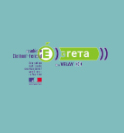
Greta du Velay is a public training organisation gathering 21 educational institutions such as Adult Education, secondary schools, high school and colleges under the wing of the Ministry of Education. Half of the activity consists in supporting small and medium companies in their learning processes, and the other half consists in supporting social and vocational inclusion of disadvantaged target groups such as young unemployed or migrants, through various activities such as the development of key competences, of transversal competences, support to discover and orient towards career and jobs…




